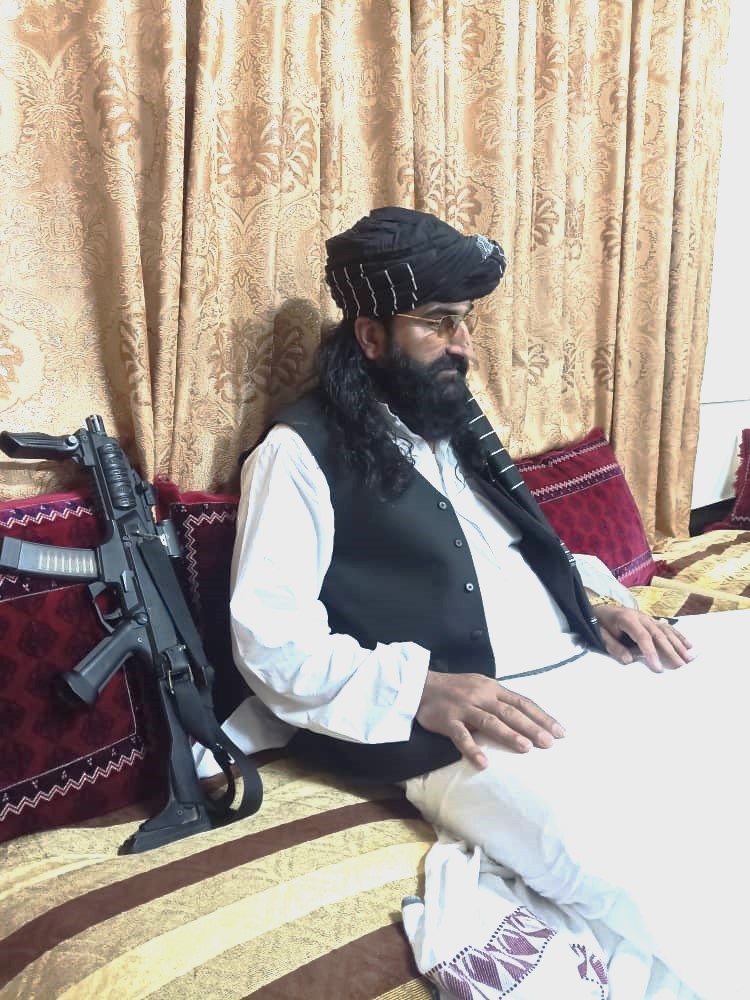Pakistan Taliban chief Mufti Noor Wali Mehsud spoke to The Sunday Guardian from Kabul.
New Delhi: While Pakistan witnesses prolonged political disturbances and economic challenges, the one thing that seems to be working for it so far are the peace talks with Tehreek-e-Taliban Pakistan (TTP) that are taking place in Kabul.
The talks that are being carried out under the supervision of the Taliban government, have continued despite recent incidents that had the potential to derail the talks, like the killing of Al Qaeda chief Ayman al-Zawahiri by the US government and the execution of one of the prominent TTP commanders, Umar Khalid Khorasani, in a car blast, apart from the killing of several other TTP commanders by the Pakistan Army. Amid all these developments, Mufti Noor Wali Mehsud, the chief of TTP, who is in Kabul, spoke to The Sunday Guardian on the future of the talks and the recent incidents. Edited excerpts:
Q: There are conflicting reports about the status of the peace talks between the TTP and the Pakistan Army representative. What is the correct position?
A: The talks have continued so far. The future course depends on the government of Pakistan.
Q: Several TTP commanders, including a senior TTP commander, Umar Khalid Khorasani, were recently killed. Who did this attack and will this affect the negotiations?
A: The investigation in this attack has not been completed so far, so it would be premature to say anything about it, or to say anything about the positive or negative impact of the attack on the negotiations.
Q: Will the TTP “respond” to Khorasani’s murder?
A: The response to the murder is suspended till the killer is found.
Q: A significant section of Pakistan’s civil society members are criticising the Pakistan Army for entering into peace talks with the TTP. Do you think that the military officers who are participating in the negotiations are representing the will of the entire country?
A: The will of every individual of the country can neither be represented by a political leader nor by any army. However, the army has formally taken the parliament, which is the representative of the will of the people, into confidence regarding the peace talks. Therefore, this is enough as this represents the will of the country.
Q: One of your main demands is to end the merger of FATA with KPK (Khyber Pakhtunkhwa). What will the TTP do if the Pakistan Army accepts all the other demands except this?
A: TTP remains committed to ending the FATA merger.
Q: The talks are being hosted by the Taliban leadership in Kabul. What role is the Taliban playing in these negotiations? Does the TTP see Taliban as an entity that will ensure that the Pakistan Army does not renege on its promises?
A: The Taliban is playing the role of a mediator in these negotiations. The scale of the role of the Taliban will be clear by the end of the negotiations. We will discuss it at that time.
Q: When the talks started last year, the Prime Minister of Pakistan was Imran Khan, now there is another Prime Minister (Shehbaz Sharif). How has this change affected the negotiations?
A: This change has not yet affected the negotiations in any way as of now. As far as the future is concerned, the negative and positive impact will be assessed after the negotiation team sits down. The hope is that the negotiations will continue without any negative impact.
Q: Is the TTP leadership ready to surrender?
A: No way. There will be no surrender.
Q: There are reports that in the coming months, if the talks are successful that the TTP will be asked to become a part of Pakistan’s political system and contest elections. Do you see that happening?
A: No, we don’t see any such thing happening.
Q: Al-Qaeda chief Ayman al-Zawahiri was killed in a drone strike in Kabul. Reports suggest that his whereabouts were revealed to US forces by Pakistani agencies. What effect will his death have on the peace talks?
A: In our opinion, the question is related to the Afghan Taliban and whether they are ready to play the role of a mediator despite this interference and mistrust or not.
Q: The killing of Zawahiri shows that there is no “security” even in Kabul where the Taliban rules. Are you worried about it because you are also wanted by the armed forces of Pakistan?
A: Jihad consists of such incidents and accidents, so we have no worries.

